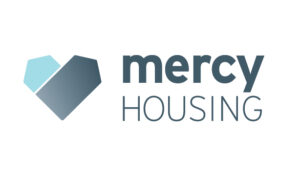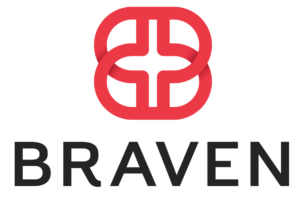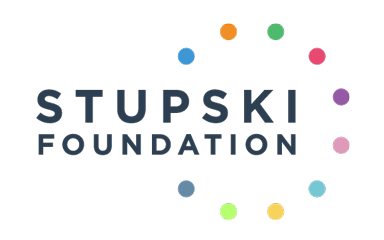Because Change Can’t Wait
Jan. 27, 2020
The first 100 days of a new president’s term represent an initial sprint, where our new leaders spring from their starting blocks to fulfill campaign promises and race ahead to give the country early measures of success. President Joe Biden and Vice President Kamala Harris, with the support of a Democratic majority in the House and the Senate, have already started to work through a lengthy task list to complete by the end of their first 100 days. Yesterday, Biden briefed the nation on his administration’s Racial Equity Agenda to propose measures to address long-held racial injustices in our country. Meanwhile, his administration is working to address other pressing challenges in these initial days with developing a COVID-19 response plan, working with Congress on a new pandemic relief package, and pushing for comprehensive immigration reform.
At Stupski, we believe that our government should prioritize policies that reflect the priorities of the communities that are closest to the challenges. We asked a group of our grantee partners in the Bay Area what priorities they hope to see the new administration take on. Here is what they believe will have the greatest impact on their work and the communities they serve.
Create New Progressive Solutions That Promote Racial Equity and Opportunity

“I hope our government stops promoting neo-liberal status-quo policies and instead embraces progressive solutions befitting these unprecedented times. Americans need jobs that pay living wages, affordable housing, quality education, universal health care, debt relief, climate justice, and end to police murder. For generations, Black, indigenous, and immigrant communities across America have been marginalized from opportunity and targeted for enforcement by our own government. If our government is to do any good at all, it must retire its moralizing and instead abdicate its allegiance to corporations and the cultural hegemony of capitalism and white supremacy. Unfortunately, no system built to enslave and extract will bestow liberation and justice voluntarily, so we need to continue organizing to bend America’s long arc toward justice.”
—Lukas Brekke-Miesner, Executive Director of Oakland Kids First
Learn about Oakland Kids First’s work increasing youth voice, leadership, and power to create engaging and equitable public schools within the Oakland Unified School District where all students learn and lead.
Strengthen Our Government’s Social Contract with the Asian Pacific Islander Community

“In San Francisco, Asian Pacific Islanders (APIs) encompass about one-third of the population but represent almost half of those in poverty. Our community was already in crisis before the pandemic, so it’s more important than ever that our government promotes policies that strengthen our social contract.
“Poverty, homelessness, food insecurity, and many other issues that were exacerbated by COVID-19 are shouldered disproportionately by our clients. In addition, we’ve seen an alarming rise in racial violence against APIs, impacting the communities’ livelihoods in historic API neighborhoods across the country. We support a radical shift in the ways we communicate community needs at the local level so that our government addresses them urgently and meaningfully.
“Rebuilding our tattered social contract will require our government to allocate resources to communities that need it most, promote policies that seek to eradicate poverty and uplift equity, and strengthen communication in intentional and culturally competent ways—that is how we can move forward in the spirit of progress.”
—Cally Wong, Director of API Council
Learn about API Council’s work uniting Asian and Pacific Islander communities in San Francisco.
Address Homelessness and Serve Seniors From Their Homes
 “I hope the Biden-Harris administration will bring the federal government back into the work of addressing our national housing and homelessness crises. This would mean coming to the table with substantive levels of funding for moving people out of homelessness and helping to prevent homelessness. The administration should also harness the power of large federal programs like Medicaid to serve seniors in community settings like affordable housing to enable seniors to age in their own homes instead of more expensive nursing home settings.”
“I hope the Biden-Harris administration will bring the federal government back into the work of addressing our national housing and homelessness crises. This would mean coming to the table with substantive levels of funding for moving people out of homelessness and helping to prevent homelessness. The administration should also harness the power of large federal programs like Medicaid to serve seniors in community settings like affordable housing to enable seniors to age in their own homes instead of more expensive nursing home settings.”
—Doug Shoemaker, President of Mercy Housing California
Learn about Mercy Housing’s work transforming lives through affordable housing.
Build an Equitable Career Preparation Pipeline for College Students

“Even before COVID-19, college graduates from low-income households earned 66 cents on the dollar to wealthier peers. Without career preparation, paid internships, and networking opportunities, inequality will grow in this job market.
“Early concerns emerged this spring when internships—a strong predictor of initial post-college career success (NACE)—plummeted by around 50% (Glassdoor). This is likely to impact students from low-income backgrounds and/or students of color the most. And those who are initially underemployed after graduation are five times more likely to be underemployed after five years (Burning Glass).
“Policymakers can reverse this trend and help students land strong first jobs by:
- Launching a paid internship, jobs, and a service fund to offer college students and recent graduates the opportunities to gain experience while helping boost the economy.
- Supporting public colleges to fulfill their missions as engines of economic mobility by funding them appropriately, ensuring innovative career preparation, and transforming work-study into career-accelerating internships.”
—Kate Shoemaker, Vice President of Public Policy & New Site Development at Braven
Learn about Braven’s work empowering college students to put their education to work.
What Comes Next
We are listening closely and agree with what our partners at Oakland Kids First, API Council, Mercy Housing California, and Braven hope to see our new administration prioritize. If we are to build a brighter, more equitable post-pandemic future, our government must prioritize racial equity; address the systemic violence, oppression, and xenophobia that marginalize communities of color; solve the housing and homelessness crisis; promote economic and educational mobility for hardworking students from low-income backgrounds; and bring community voice to the decision-making table.
We are ready to see our government make the fundamental changes our communities call for today so that we all may rise up together.


